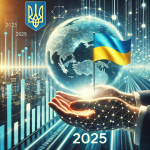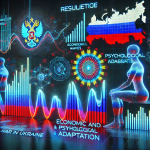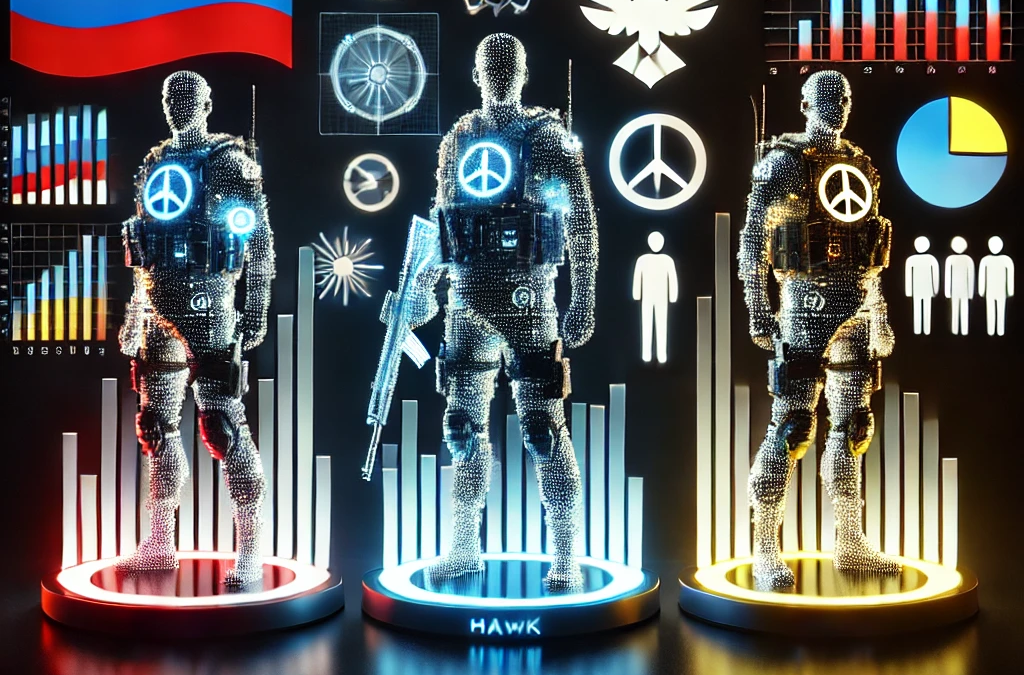
Майбутнє конфлікту в Україні у 2025 році: що нас чекає та як ви можете допомогти
December 30, 2024
Неохочий консенсус: розуміння громадської думки в Росії щодо війни
December 30, 2024A new report, “The Reluctant Consensus: War and Russia’s Public Opinion”, authored by Maria Snegovaya and published by the Atlantic Council, offers a comprehensive analysis of Russian public opinion since the February 2022 invasion of Ukraine. The report is part of the Russia Tomorrow: Navigating a New Paradigm series, which aims to reevaluate conceptions of modern Russia and inform Western policy. Drawing from extensive polling data, sociological studies, and historical trends, the report sheds light on the entrenched support for the Kremlin amidst economic hardship and international isolation.
1. The Rally-Around-the-Flag Effect
Putin’s approval ratings surged after the invasion, consistent with historical patterns observed during previous Kremlin-led conflicts. This “rally-around-the-flag” effect not only boosted support for the president but also bolstered patriotism and faith in state institutions. While this collective sentiment initially spiked, it has since stabilized at high levels, reflecting a societal shift towards a siege mentality.
2. Demographic and Ideological Divisions
The report identifies key societal clusters regarding attitudes toward the war:
- Loyalists (42.5%): The largest group, these individuals pragmatically align with the Kremlin out of conformity or fear of NATO threats.
- Hawks (13–15%): Fiercely ideological, they advocate for the continuation of the war and are more prevalent in rural areas with traditional media reliance.
- Opponents (22–30%): Primarily younger, urban, and independent media users, they voice opposition but lack the cohesion to significantly challenge the status quo.
3. The Role of Media and Information Access
Despite the growing availability of alternative information sources like YouTube and Telegram, the Kremlin maintains a strong grip on public opinion through state-controlled TV. The report emphasizes how many Russians deliberately avoid contradictory information to sidestep cognitive dissonance, reinforcing the government’s narratives.
4. Economic and Psychological Adaptation
The report highlights how Russians have adapted to the war’s economic and personal tolls. Initial shocks, such as sanctions and partial mobilization, temporarily disrupted public sentiment but quickly normalized, aided by state propaganda and economic adjustments.
5. The Credibility of Polling
Addressing skepticism about polling in authoritarian contexts, Snegovaya argues that Russian public opinion data is largely reliable. The report acknowledges minor distortions due to preference falsification but concludes that most Russians genuinely support the war or acquiesce to its continuation.
6. Key Takeaways
The report concludes that Russian society’s acceptance of the “new normal” is rooted in decades of state-led indoctrination, a deep-seated siege mentality, and practical adaptation. Opposition remains fragmented and marginalized, while economic resilience and propaganda sustain support for the regime.
About the Report
This analysis is authored by Maria Snegovaya, a senior fellow at the Atlantic Council’s Eurasia Center and an adjunct professor at Georgetown University. With expertise in Russian domestic and foreign policy, her research provides a critical lens for understanding the dynamics of Russian society during wartime. Published in December 2024, the report draws on extensive data, including Levada Center polling and studies by organizations like the Open Minds Institute and Russian Field.


